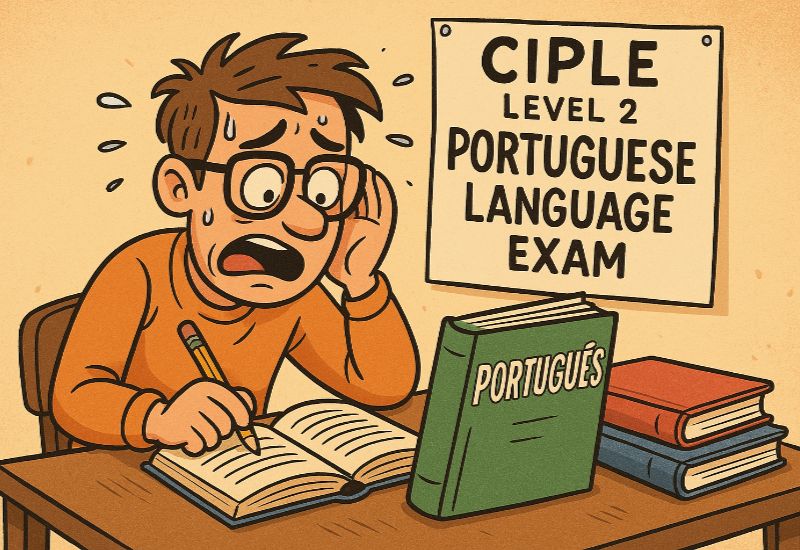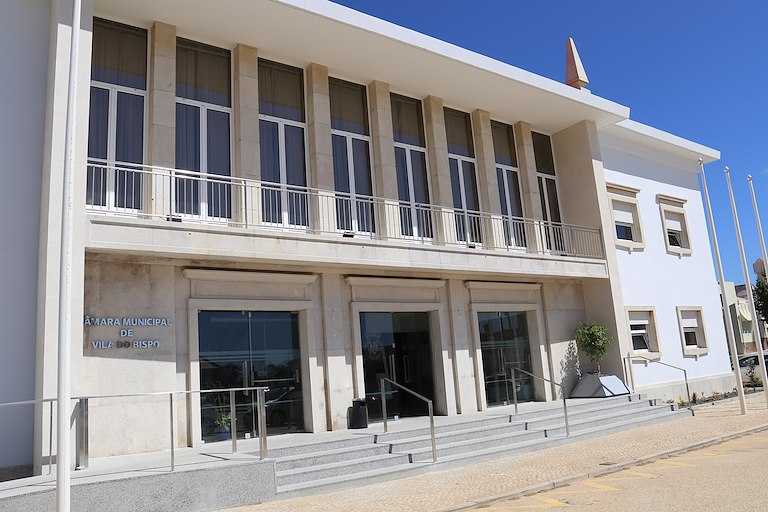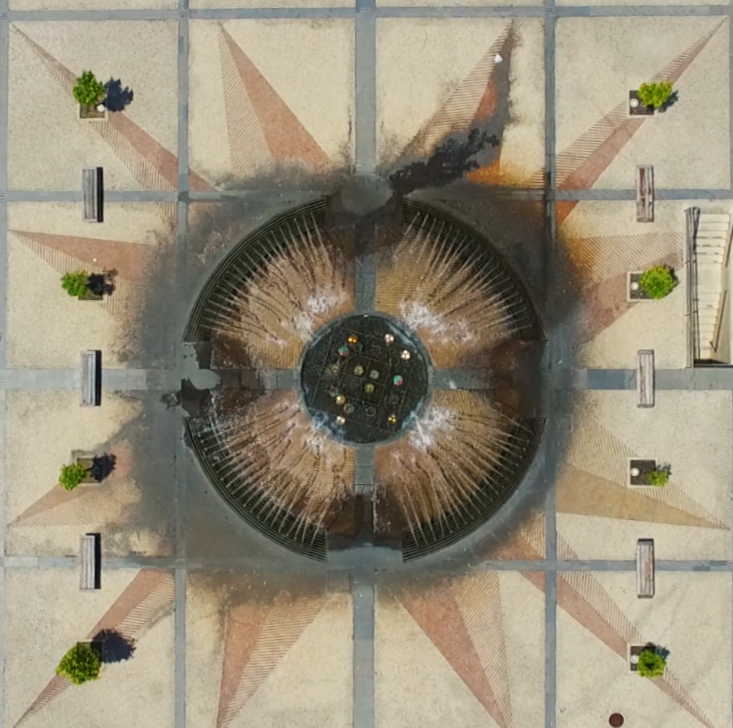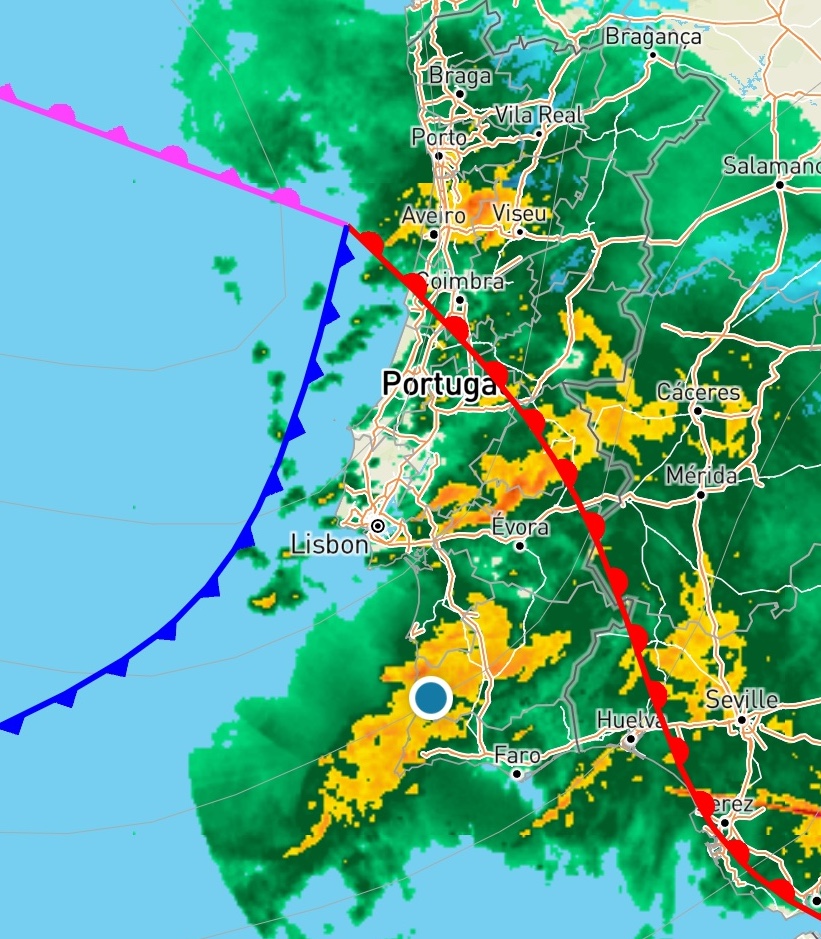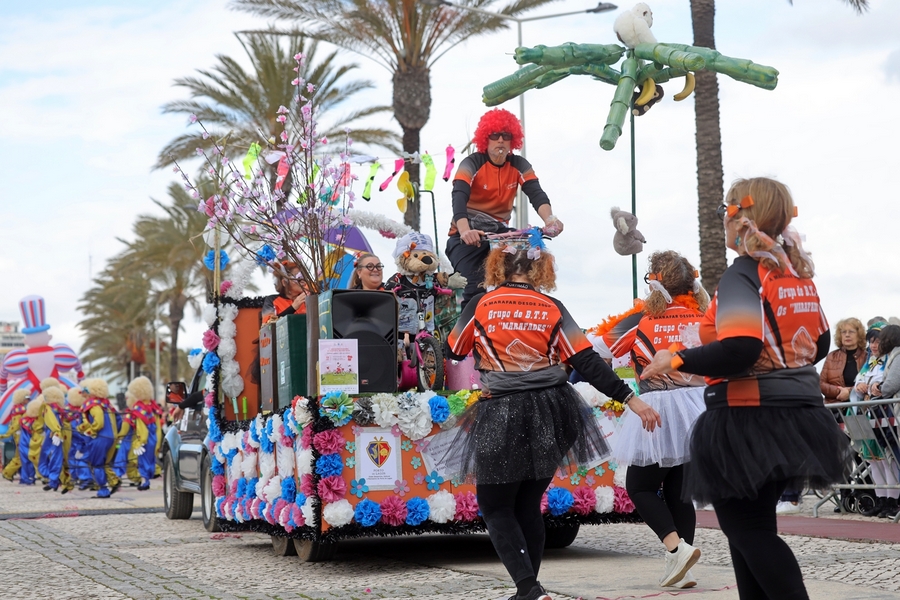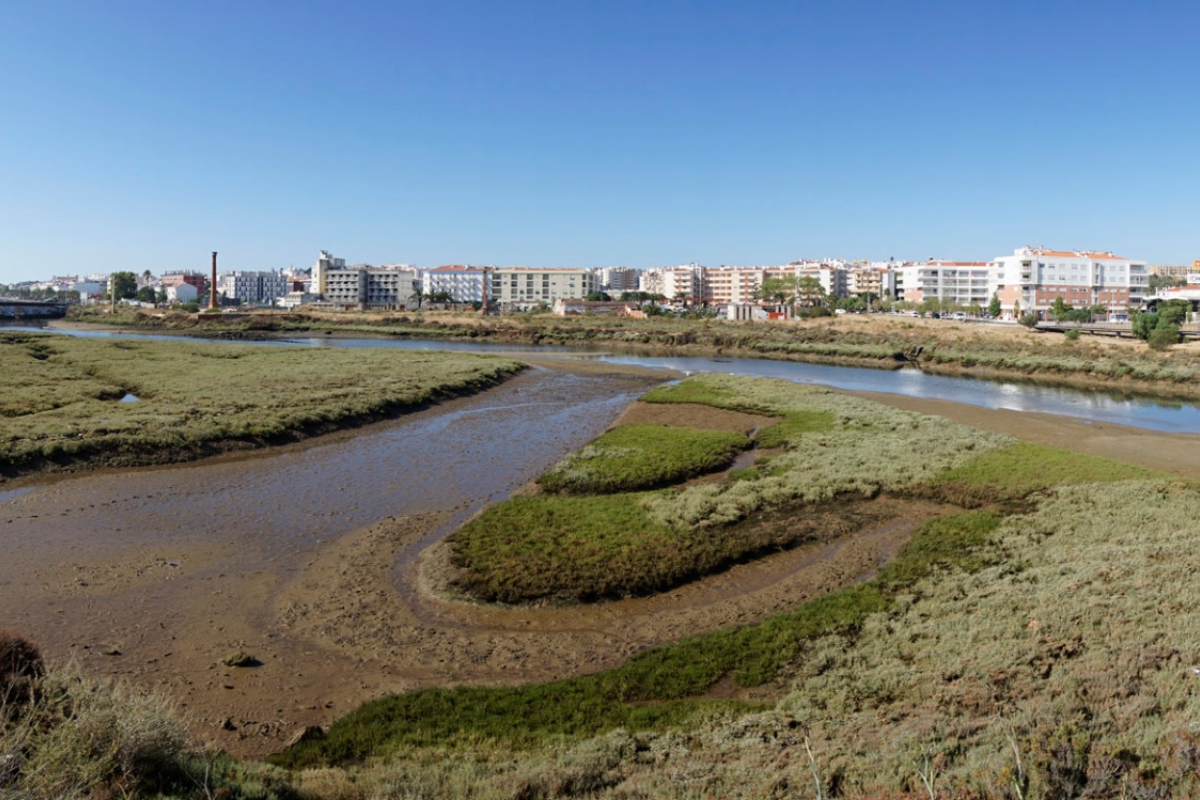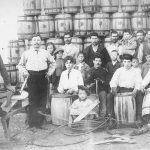Our contributor, Vaughan Willmore, recounts his experiences taking the A2 exam, often referred to as the CIPLE, and offers advice for anyone considering a similar endeavour.
Why am I doing this? I haven’t sat an exam for over 20 years and here I am, 48 hours before the big day, frantically looking through my notes and trying to figure out whether it’s possible to tape a chart of Portuguese verbs to my left forearm and if I did, whether anyone would notice.
The Certificado Inicial de Português Língua Estrangeira (Initial Certificate in Portuguese as a Foreign Language) is commonly known as the CIPLE exam. It’s a test of one’s ability to read, write, hear and speak Portuguese at what is described as the A2, beginner’s level. A pass is a score of 55% and that’s what’s needed to apply for citizenship. That’s partly why I’m taking the exam, but also because I wanted to give more focus to what has too often been a rambling approach to learning the language.
The exam costs €82. I booked in February and sat the exam a few weeks ago at the Universidade do Algarve in Faro. It’s our nearest venue, but there are many others, both here in Portugal and overseas. Whilst there’s talk of making it more difficult to gain citizenship, there’s no suggestion that the CIPLE will change. In fact, another exam might be added to test applicants’ knowledge of Portugal, its history, culture, and governance.
The big day. I arrived at 9 am, ready to be signed in from 9.30 am for the reading and writing part, which started at 10 am and lasted 70 minutes. Approximately 120 names are listed on the notice board telling us which of the four rooms to go to. There’s nowhere near that many people here, more like 70 people. Perhaps they’ve had second thoughts.
The reading is multiple choice and thankfully, far easier than the sample questions I’ve been practising with (see link below). The writing part involves formulating a 20–30 word response to a text message, followed by a 60–80 word letter about a recent holiday. Flip. That’s the first challenge for me, writing in the past tense. I wasn’t expecting that.
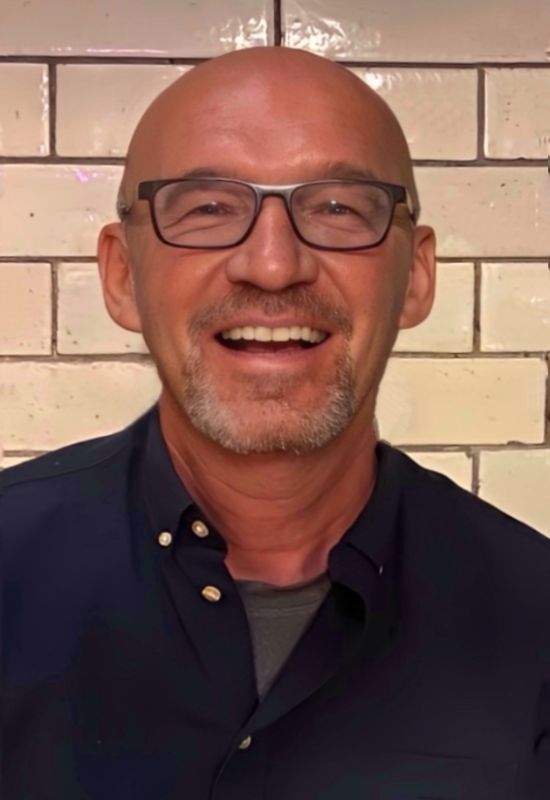
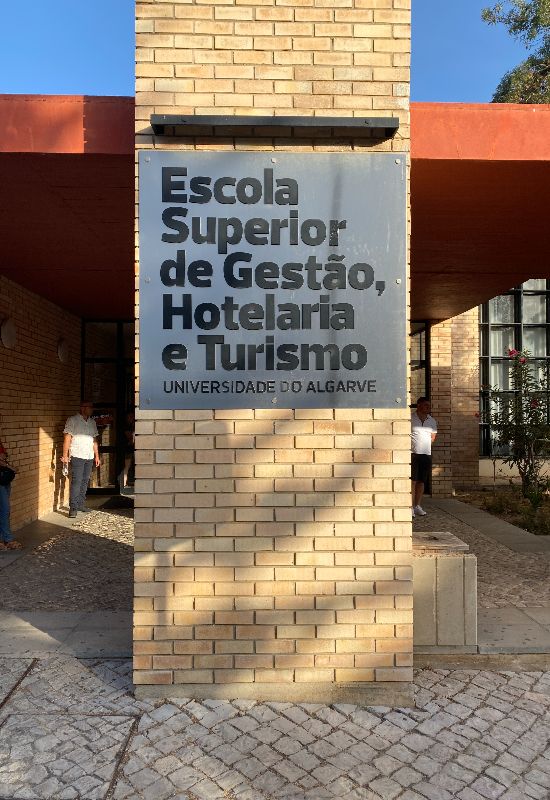
There’s a 10-minute break before the listening exercise, or what is often referred to as ‘the most difficult part’. It lasts 30 minutes and, again, is a multiple-choice test. The audio starts and everything is fine for the first five questions, but they’re getting more difficult. On the sixth question, I haven’t a clue what they said. Should I guess? There’s a seventh question and I’m not sure what to answer. With the eighth question, I’m still thinking about the previous two questions (silly me) and things unravel. It’s the toughest part of the day and more difficult than any of the sample questions. My newfound friend, ‘Roger from Olhão’ (not his real name), agrees and looks rather unwell.
There’s then a three-and-a-half hour break (yes, I know) before I return for the speaking/verbal part. I head into the city centre to clear my head and eat. Could my preparation have been better? It has been intense – an hour’s revision every day for the last four months, mainly self learning by drawing upon numerous books I’ve accumulated over the years. The only ‘course’ I did from start to finish was the Michel Thomas audio course, though I have been assisted in recent weeks by a Portuguese friend with my writing. Watching television with the subtitles on proved helpful and I heartily recommend two TV shows – Gloria (a spy drama set in the 70s) and Pôr de Sol (a contemporary comedy).
Back to the exam, and with this final part, I’m partnered with another student to interact in a classroom with two assessors. We introduce ourselves and are asked questions about work, hobbies, and our lives in Portugal. We’re given an image and are asked to describe it. Mine is of four people walking in the countryside. I struggle. I mean, even in English, I’m not sure what I’d say: “It’s four people walking” clearly isn’t enough. My partner, who’d told me earlier he speaks Portuguese ‘OK’, is brilliant. He’s 35 and has lived in Portugal since he was eight. This is an eye-opener: there’s a wide range of abilities. Not every student is a ‘beginner’.
The verbal interaction lasted 20 minutes and that was it, the end of the exam. I was there from 9 am to 4.30 pm, so it was a long day. Did I pass? I don’t know, we don’t get the results until 10 November. I’ve either just passed or just failed. Either way, it’s OK because I feel that with a little more work, I can pass this exam.
My advice
Check out the venue before the big day. It helped settle my nerves and meant I wasn’t worrying about where to park. I was there on a Saturday and there was plenty of free parking available on campus.
Take food and drink. It’s a long day.
Keep focused. There are students of all abilities, but don’t let that distract you. Also, if you don’t know the answer to a question, then guess and move on to the next, which is something I failed to do in the listening part.
Practice those listening skills. Many people refer to it as the most difficult part.
Make a friend or two. It’s a long day so it’s good to have someone to chat with.
Enjoy. Seriously, it was a fascinating day. The staff were friendly and it felt like a supportive environment.
You can pass it. There are no trick questions and so long as you put in the effort beforehand, it’s all doable.
The CIPLE website (see below) provides more details and sample papers.
Boa sorte!
